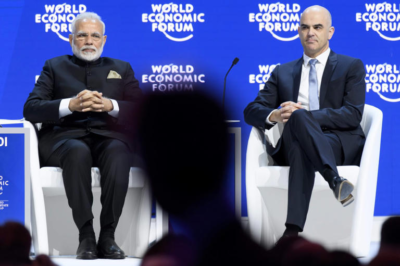
The Federal Department of Finance, Switzerland, has announced the withdrawal of the Most Favoured Nation (MFN) clause for Indian entities under the Double Taxation Avoidance Agreement (DTAA). Effective from January 1, 2025, this decision is expected to result in increased tax liabilities for Indian companies operating in Switzerland.
Key Highlights of the Decision
- Reason for Withdrawal:
- The move follows the Supreme Court of India’s ruling in the Nestle case, which rejected the automatic applicability of the MFN clause under the DTAA with Switzerland.
- Switzerland cited the lack of reciprocity in India’s interpretation of the clause as the basis for its decision.
- Implications on Tax Rates:
- Dividends paid by Indian companies to Swiss entities will now be taxed at 10%, up from the earlier 5%, owing to the removal of the MFN provision.
- Other forms of income, including royalties and fees for technical services, may also face higher tax rates.
- Reciprocity as the Basis:
- Switzerland’s decision underscores its view that Indian taxpayers are not extending equivalent concessions to Swiss entities under similar tax treaties with other nations.
Expert Opinions
- Sandeep Jhunjhunwala, M&A Tax Partner at Nangia Andersen:
The shift reflects the growing emphasis on mutual agreement in interpreting international tax treaties, adding layers of complexity for Indian businesses navigating global taxation. - Amit Maheshwari, Tax Partner at AKM Global:
The decision may lead other countries to adopt similar approaches, reinforcing the principle of equality in taxation and stressing the role of reciprocity in treaty negotiations.
Broader Impact
- Increased Tax Liabilities:
Indian companies operating in Switzerland must prepare for higher taxation and assess potential adjustments to their financial strategies. - Global Precedents:
The Nestle case and Switzerland’s response could set a precedent for other jurisdictions to evaluate and revise their bilateral treaties with India. - Diplomatic and Economic Ramifications:
The development could impact India-Switzerland business relations, underscoring the need for renegotiation of treaty provisions for enhanced clarity and fairness.
Future Outlook
This withdrawal exemplifies the evolving complexity of international taxation in a world that increasingly prioritizes fairness and mutual respect in agreements.
- Key Question: Will this move spur India and Switzerland to renegotiate their DTAA to restore economic benefits for both parties?
Conclusion
As the January 1, 2025, deadline approaches, Indian businesses operating in Switzerland must adapt to the new tax landscape while monitoring potential developments in bilateral treaty negotiations.









































Leave a Reply